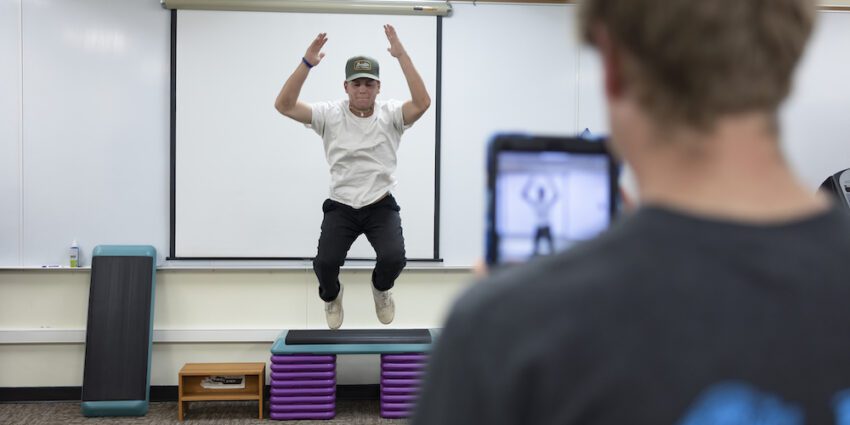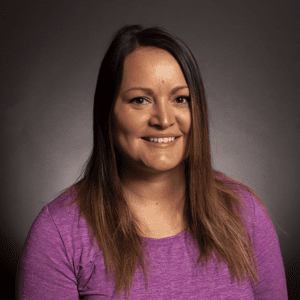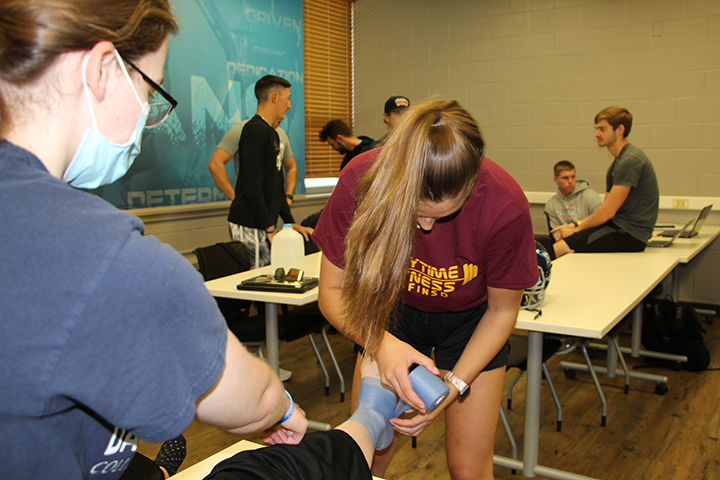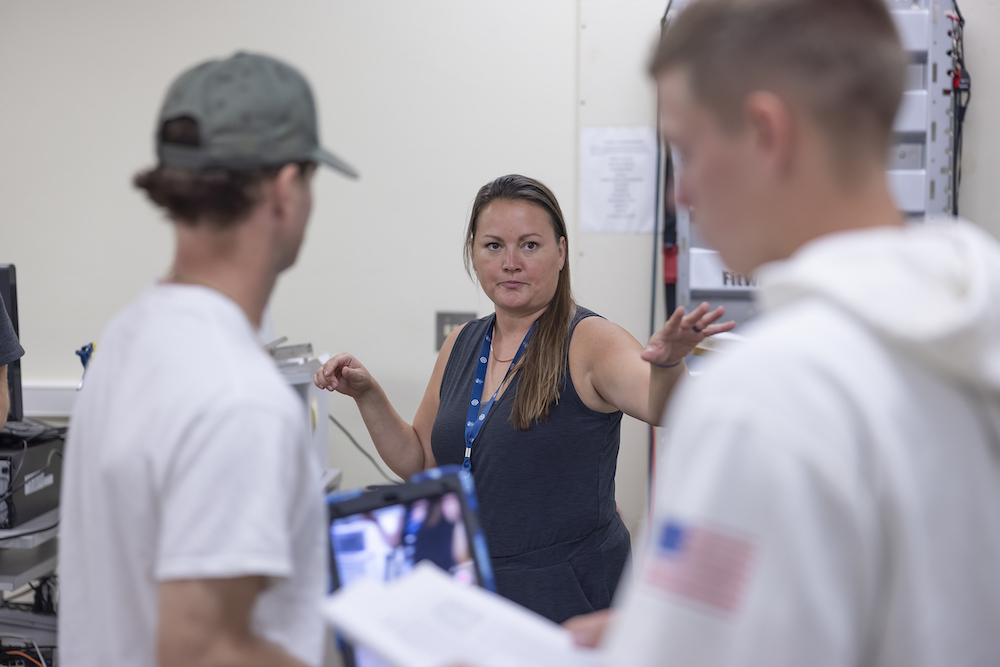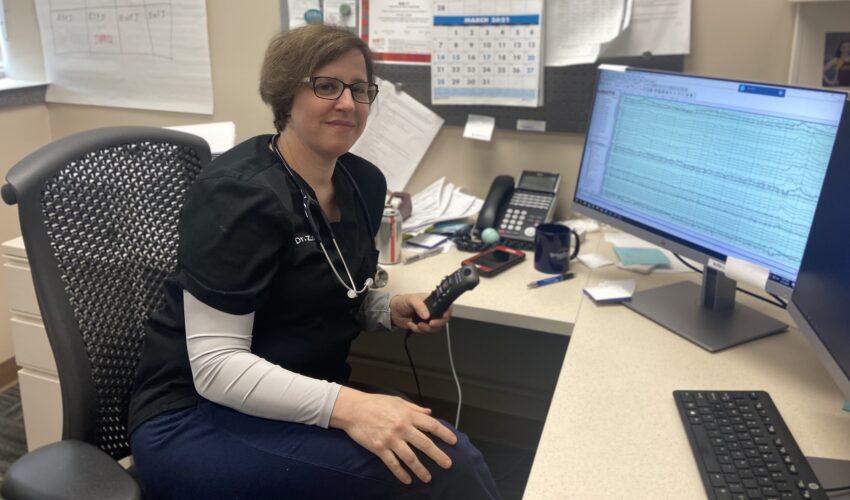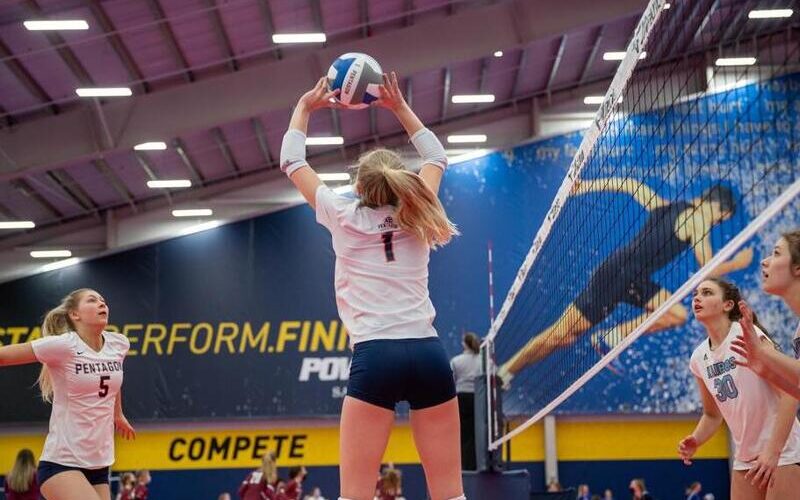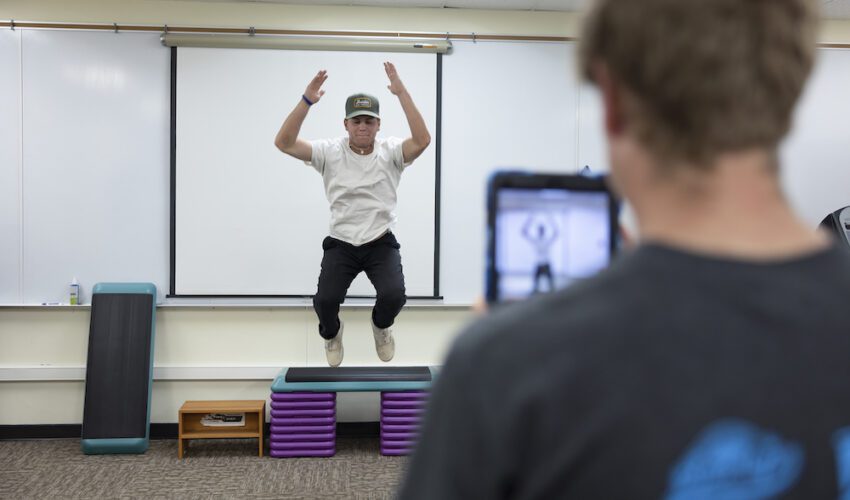Learning science of exercise can lead to careers from medicine to technology
Oct. 21, 2021
This paid piece is sponsored by Dakota State University.
A degree in exercise science can put graduates on the path to a variety of careers, such as first responder positions, athletic training, chiropractic care and more. Combined with the tech courses provided at Dakota State University, students will graduate prepared to join everything from health care to military service and police work.
“We can send people to medical school through our exercise science program,” said Kari Hall, instructor of exercise science.
Students graduating with a computer science and exercise science background also can find opportunities in the growing exercise technology industry, from fitness apps to Apple Watches and Fitbits to digital fitness platforms and equipment.
“There’s plenty of places for them to go,” Hall said.
Some students join the program knowing exactly what they want to do. May 2020 graduate Natalie Van Wyhe knew she wanted to be a firefighter when she came to DSU, and the exercise science program helped her do that.
“When I walked into Dakota State, I told them right away what my plans were, and they were very helpful getting me there,” Van Wyhe said. She applied to be a firefighter in Sioux Falls in July 2020. After being approved to participate and attending a 16-week training academy, Van Wyhe began working in May 2021.
Other students learned what they wanted to do along the way.
“I enjoyed different realms of the exercise science program. I felt like it gave us enough exposure and opportunities to figure out what we wanted to do with our degree,” said Melissa Krapf, a 2021 graduate. “This program helped me realize my passion for athletic training and helped me go pursue it.”
Krapf is earning her Master of Athletic Training from Midland University in Nebraska. She appreciates that the DSU program taught her the importance of all health care fields and to be an advocate of overall health, focusing on physical, mental, emotional and spiritual health.
“The program really builds a well-rounded student,” Hall said, describing the program as very science-based with a lot of biology and some chemistry.
Exercise science at Dakota State is unique with small class sizes and no application process – students can be in the program as long as they’re passing their courses at the appropriate level, Hall explained.
A sophomore practicum helps students gain experience working with the public, such as spending time with an athletic trainer, physical therapist or chiropractor, and getting out in the DSU community. The following year, they get hands-on experience working with clients and customers at the Madison Community Center.
By the time students are juniors and seniors, classes average about 15 students, enabling exercise science faculty to give individualized attention in their classes.
In addition to the computer science courses students take, the program uses a variety of technologies, such as force plates, metabolic carts, FITLIGHTs, a NeuroTracker and Dartfish.
FITLIGHT trains the body and the brain to improve reaction time, Hall explained. In a similar fashion, the NeuroTracker is a system that uses 3D multiple object tracking to train the brain, strengthening the user’s mental skills in areas of attention, awareness, memory and processing abilities. Dartfish, a video recording system, is used to analyze the human body.
These technologies provide opportunities for mentored research like testing assessment equipment, sports performance and using NeuroTracker with softball student-athletes to see if it could help improve players’ hitting performance.
“Anything could be a research question,” Hall said. “We want our students doing research.”
Garrett Boyce, also a graduate student in athletic training at Midland, said his degree at DSU prepared him for doing his own research in the field of exercise science. A 2021 graduate of the program, Boyce also benefited from learning that in the real world you will be dealing with people.
“Having classes that you actually got to work with people in the community and help them through health goals was a great way to see how adaptable you have to be in this profession,” he said.
Hall finds this a particularly important part of the program.
“It’s a fun major – it’s hard and it’s fun – but I think if you don’t have empathy and you don’t understand how to treat people with dignity and respect, you’re going to struggle in this field.”
Visit DSU’s website for information on the exercise science program.

